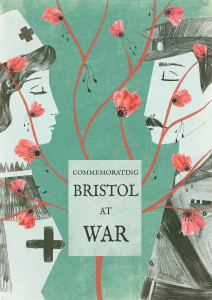Bristol Adopts Bethune

Share this
The British League of Help was formed in 1920 as a charitable body with a single purpose: to provide aid to communities in the areas of Northern France devastated during the First World War.
It pursued its objective by encouraging British cities and towns to become a ‘Godparent’ to a small town or village that had been destroyed; the village was ‘adopted’, a relationship was established with the people who had returned to their ruined homes, and various types of aid relevant to their particular needs were provided.
80 British cities and towns adopted 95 French towns and villages, and considerable material help and moral support was provided.
In 1914 Bethune was a town of 15,300 inhabitants, but by 1920 the estimated population was around 5,000. Before the war there were 3,550 houses in the town and of that number 900 were totally destroyed and 2,550 partially destroyed.
In October 1920 Bristol’s Lord Mayor, Alderman J T Francombe, called a meeting of Citizens at which it was decided to adopt the town of Bethune. However, owing to the state of the economies in France and England little was done until 1922 when the then Lord Mayor, Alderman Sir Earnest Cook, realising that Bristol’s pledge to help Bethune needed to be upheld, called a public meeting of Citizens on 18 July 1922. An influential committee was appointed, and as a result of their efforts under the guidance of Sir Frank Cook, a sum of £5,564 was raised towards a scheme for providing dwellings for the widows and families of French soldiers killed in the Great War and resident in Bethune. A further top-up of £250 was raised to complete the fundraising to build the properties.
Visits to Bethune were made from time to time by Sir Earnest Cook, Mr Frank Cowlin, and Mr W H Watkins (architect), and as a result eight maisonettes and eight dwelling houses of modern design and arrangement were built on a site belonging to the Municipal Council of Bethune on land at Rue de L’Armee.
Bristol Architect, W H Watkins was based at 15 Clare Street in the city. The French contractors who carried out the work were Messrs Hoebeke and Flitz. Construction started on 1 April 1924 and was due for completion on 1 November 1924.
However, house building was delayed, but was finally completed in time for an Opening Ceremony on 24 March 1925 and was attended by many Bristol and French Civic leaders and dignitaries.
In the centre block of houses was a stone panel that read “Given by the citizens of Bristol, England, to the town of Bethune, in memory of true comradeship during the Great War, 1914-1918. Erected 1925.”
In 1967 the Lord Mayor of Bethune wrote to the Lord Mayor of Bristol to say that the houses had fallen into disrepair and asked for permission to demolish them (le Cite de Bristol) in order to replace with new housing. The Lord Mayor of Bethune undertook that the new site would forever be known as ‘Bristol’.

